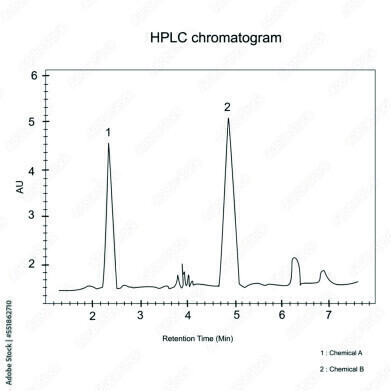HPLC, UHPLC
What are the Reasons for Resolution Failure in HPLC?
Mar 07 2023
High-performance liquid chromatography (HPLC) is a widely used analytical technique in the field of chemistry, biochemistry, and pharmaceuticals. However, despite its popularity, HPLC can experience resolution failure, which can impact the accuracy and reliability of the results. There are several reasons for resolution failure in HPLC, including the following:
- Column Issues: The column is a critical component of an HPLC system. Issues such as column contamination, degradation, or damage can lead to resolution failure. It is essential to properly maintain and replace columns to ensure accurate results.
- Mobile Phase Issues: The mobile phase is another critical component of an HPLC system. Issues such as incorrect pH, buffer concentration, or solvent composition can impact separation and lead to resolution failure.
- Sample Preparation: Proper sample preparation is crucial to obtaining accurate HPLC results. Incorrect sample preparation can lead to issues such as sample degradation or contamination, which can impact separation and resolution.
- Instrumentation Issues: Instrumentation issues such as detector malfunctions, flow rate fluctuations, or system leaks can impact the accuracy of HPLC results.
- Method Development Issues: HPLC method development requires careful consideration of factors such as column selection, mobile phase composition, and sample preparation. Failure to optimize these factors can lead to resolution failure.
- Operator Error: Finally, operator error can also lead to resolution failure in HPLC. Issues such as incorrect injection volume, incorrect mobile phase flow rate, or incorrect column temperature can impact separation and resolution.
In conclusion, resolution failure in HPLC can have a significant impact on the accuracy and reliability of results. To minimise resolution failure, it is essential to properly maintain and replace columns, optimise mobile phase composition and sample preparation, and carefully consider all factors involved in method development. Additionally, operators must be properly trained and vigilant in their use of HPLC systems to avoid common errors that can impact separation and resolution.
More information online
Events
May 11 2025 Vienna, Austria
May 18 2025 Tempe. AZ, USA
May 21 2025 Birmingham, UK
Jun 01 2025 Baltimore, MD, USA
Jun 15 2025 Bruges, Belgium














